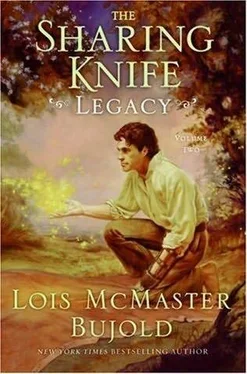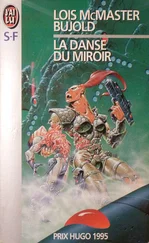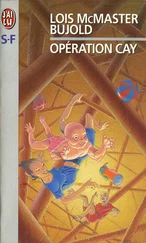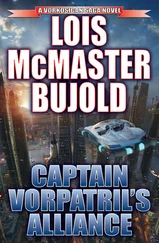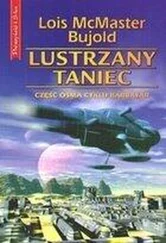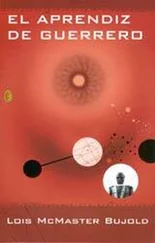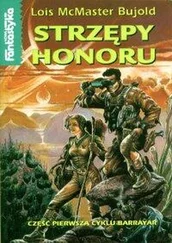Dag smiled a slow smile. “Why not? They gave me their best daughter.”
“But I’m their only daughter,” said Fawn.
“Saves argument there, eh?” said Dag.
Omba caught up her braid and rubbed the end. “To farmers! What do they know about Lakewalker horses? What if they try to make Swallow pull a plow? Or cut Darkling? Or…” Her face screwed up, as she evidently pictured even worse farmer misuse of the precious horses.
“My family takes good care of our horses,” said Fawn stiffly. “Of all our animals.”
“They won’t understand,” said Omba.
“I will,” said Dag. He gave her a nod. “See you at dinner. Who’s cookin’?”
“Cumbia. You might want to grab a plunkin off the goats on the way, to fortify yourselves.”
“Thanks, but I guess we’ll survive.” He gestured Fawn away. She gave Omba another knee-dip and smile by way of farewell; the Lakewalker woman just shook her head and returned a sardonic wave. But not hostile, Fawn reminded herself.
As they reached the bridge again, Dag held the gate aside for a girl leading a couple of horses with pannier baskets piled high with plunkins; she gave him a nod of thanks. These plunkins did indeed seem to be mostly broken or weirdly misshapen or with odd discolorations. Fawn glanced back to see her walking along chirping and tossing out plunkins along her path, and a general movement among the goats and pigs toward this feast.
“Lakewalker animals eat plunkins too, do they?”
“Horses and cows and sheep can’t. The pigs and goats chomp them down. So will dogs.”
“I haven’t seen many dogs. I’d think you’d have more, for hunting and such. For hunting malices, even.”
“We don’t keep many. Dogs are more hazard than help on patrol. The malices snap them right up, and they have no defense. Except us, and if you’re trying to bring down a malice, it’d be no use to be distracted trying to protect a dog, especially if it’s turning on you itself.”
As they strolled back along the shore road, Fawn asked curiously, “Was your mother ever a patroller?”
“I think she had the training, way back when. All the youngsters at least get taken out on short trips around the camps. Patrollers are chosen for two things, mainly. General health and strength, and groundsense range. Not everyone can project their groundsense out far enough to be useful on patrol. The lack’s not considered a defect, necessarily; many’s the quite competent maker who can’t reach out much beyond his arm’s length.”
“Is Dar like that?”
“No, his range is almost as long as mine. He’s just even better at what he does with bones. What my mother always wanted, now…” He trailed off.
Volunteering useful information at last? No, evidently not. Fawn sighed and prompted, “Was what?”
“More children. Just didn’t work out that way for her, whether because Father was out on patrol too much, or they were just unlucky, or what, I don’t know. I should have been a girl. That was my immediate next lapse after arriving late. Or been eight other children. Or had eight other children, in a pinch, and not off in Luthlia or someplace, but here at Hickory Camp. My mother had a second chance with Dar and Omba’s children. She kind of commandeered them from Omba to raise; which I gather caused some friction at first, till Omba gave up and went to concentrate on her horses. They’d worked it all out by the time I got back from Luthlia minus the hand, anyway. There’s still just a little…I won’t call it bad feeling, but feeling, there over that.”
Mother-in-law versus daughter-in-law friction was common coin in Fawn’s world; she had no trouble following this. She wondered if Cumbia’s thwarted thirst for daughters would extend itself to a little farmer girl, dragged in off patrol like some awkward souvenir. She had taken in one daughter-in-law, quite against custom, after all. Some hope there?
“Dag,” she said suddenly, “where am I going to live?”
He looked over and raised his eyebrows at her. “With me.”
“Yes, but when you’re gone on patrol?”
Silence. It stretched rather too long.
“Dag?”
He sighed. “We’ll just have to see, Spark.”
They were nearly back to his family tent-cabins when Dag paused at a path leading into the woods. If he was checking anything with his groundsense, Fawn could not tell, but he jerked his chin in a come-along gesture and led right. The high straight boles, mostly hickory, gave a pale green shade in the shadowless light, as though they were walking into some underwater domain. The scrub was scant and low on the flat terrain. Fawn eyed the poison ivy and stuck to the center of the well-trodden path, lined here and there with whitewashed rocks.
About a hundred paces in, they came to a clearing. In the center was a small cabin, a real one with four sides, and, to Fawn’s surprise, glass windows. Even the patrol headquarters had only had parchment stretched on window frames. More disturbingly, human thighbones hung from the eaves, singly or in pairs, swaying gently in the air that soughed in the papery hickory leaves overhead. She tried not to imagine ghostly whispering voices in the branches.
Dag followed her wide gaze. “Those are curing.”
“Those folks look well beyond cure to me,” she muttered, which at least made his lips twitch.
“If Dar’s busy with something, don’t speak till he speaks to us,” Dag warned in a quiet voice. “Actually, the same applies even if it looks like he’s doing nothing.”
Fawn nodded vigorously. Putting the picture together from Dag’s oblique descriptions, she figured Dar was the closest thing to a real Lakewalker necromancer that existed. She could not picture being foolish enough to interrupt him in the midst of some sorcery.
A hickory husk, falling from above, made a clack and a clatter as it hit the shingle roof and rolled off, and Fawn jumped and grabbed Dag’s left arm tightly. He smiled reassuringly and led her around the building. On the narrower south side was a porch shading a wedged-open door. But the man they sought was outside, at the edge of the clearing. Working a simple sapling lathe, so ordinary and unsorcerous-looking as to make Fawn blink.
Dar was shorter and stockier than Dag, a solid middle-aged build, with a more rectangular face and broader jaw. He had his shirt off as he labored; his skin was coppery like Dag’s but not so varied in its sun-burnishing. His dark hair was drawn back in a Lakewalker-style mourning knot, which made Fawn wonder who for, since his wife Omba’s hadn’t been. If there was gray in it, she wasn’t close enough to see. One leg worked the lathe; the rope to the sapling turned a clamp holding a green-wood blank. Both hands held a curved knife and bore it inward, and pale yellow shavings peeled away to join a kicked-about pile below. Two finished bowls sat on a nearby stump. In the shavings pile lay discarded a partially carved, cracked blank, and another finished bowl that looked to Fawn perfectly fine.
His hands most drew her eye: strong and long-fingered like Dag’s, quick and careful. And what a very odd thing it was that it should feel so odd to see them in a pair, working together that way.
He glanced up from his carving. His eyes were a clear bronze-brown. He looked back down, evidently trying to keep working, but after another spin muttered something short under his breath and straightened up with a scowl, allowing the blank to wind down, then unclamped it and dropped it into the shavings pile. He tossed the knife in the general direction of the stump and turned to Dag.
“Sorry to interrupt,” said Dag, nodding to the half bowl. “I was told you wanted to see me immediately.”
“Yes! Dag, where have you been?”
Читать дальше
